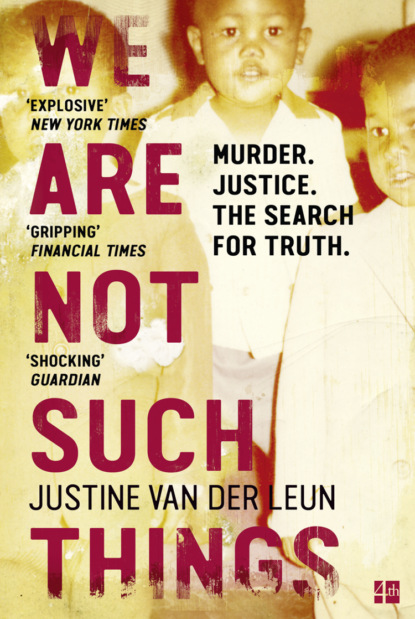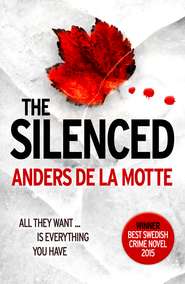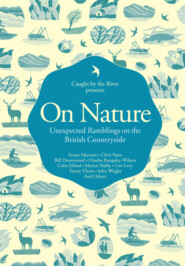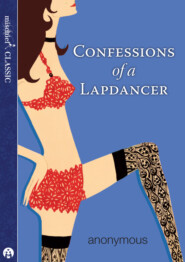По всем вопросам обращайтесь на: info@litportal.ru
(©) 2003-2025.
✖
We Are Not Such Things: A Murder in a South African Township and the Search for Truth and Reconciliation
Настройки чтения
Размер шрифта
Высота строк
Поля
“What did you do?” I once asked Wowo, as he recalled his displacement.
“You can’t complain. You keep quiet.”
“What did you think?”
“You can’t think nothing if you want to stay alive.”
The white Cape government favored coloreds, likely because Afrikaners and coloreds share a common ancestry, a language, and, often, a disdain for blacks. White people could not be expected to perform much of the menial work needed for the growing economy, and so the government’s plan was to eventually expel blacks from the Western Cape and use coloreds as their cheap labor. But the endeavor proved difficult. First, the colored workforce was not big enough to meet the demand for workers; second, blacks kept illegally sneaking in across the homeland borders, squatting in the bush, and begging for work in the cities. The government soon decided it would have to build more township houses to contain such people. After eight years of squatting in the emergency camp, Melvin’s name came up on the government’s wait list, and the Nofemelas were allowed to rent a small house on NY6. The next year, they were shuffled to a three-bedroom house on NY41; fourteen family members took up residence in the space, sharing a lone outhouse. This overcrowding was common and enduring: in 1978, in a township bordering Gugulethu, a single bed was designated, on average, for six people.
By 1980, Wowo was thirty-three and married to twenty-five-year-old Kiki. They had five children. The house on NY41 was overflowing, and relatives had built small tin shacks in the backyard. Even if they had been financially able, they could not legally purchase property in the Western Cape, since it was not a black homeland.
Finally, Wowo was granted his own place, a two-bedroom on NY111, where he remains today; he and Kiki took one room and their sons took the other. Kiki gave birth to her youngest soon after they moved in, and Wowo’s sister’s boy came to live with them—eventually seven boys were sleeping together on one big straw mattress. Since obtaining the house, Wowo had slowly extended it to the furthest edges of the property line; an overhang made of uneven cement blocks abutted the edge of the sidewalk, and a series of stand-alone brick rooms pressed against the far end of the backyard.
By 2013, Melvin’s grandchildren numbered fifty living souls—twenty men and thirty women, Easy among them. They were taxi drivers, clerks, housewives, hairdressers, insurance salesmen, postal workers, train conductors, cleaners, hospital workers, hotel room-service providers, supermarket checkout clerks, and employees of the South African Revenue Service. Ten were students. Five were unemployed. Nobody knew what two of them did with their days. One suffered from depression, one was disabled, and one was, according to her relatives, “a slow thinker from birth,” who’d been raped and who now had to be supervised twenty-four hours a day. Some lived in the Eastern Cape province—after apartheid, the country’s homelands were absorbed into the nine provinces of today—while most lived in the Western Cape, home to Gugulethu. Six had died. The number of great-grandchildren was climbing into the triple digits.
Though Melvin had no official political power, in his house, his word was law. The family considered Melvin as close to a god as they would find in this lifetime, and so as long as he was around, Wowo may have been a married father of seven, but he did not have the final say in his own household.
In the years since the first European missionary introduced Christianity to South Africa in 1737, many black preachers had taken over congregations and had created a particularly African brand of Christianity. Melvin and his wife Alice believed in Jesus Christ their Lord and Savior and in their Xhosa ancestors, who demanded animal sacrifices in return for protection. Everyone in the family followed suit, though at least one of their sons eventually disavowed traditional mores for conventional Christianity and was always grumbling about his relatives’ lost souls. Easy, for one, believed halfheartedly in Jesus and wholeheartedly in the powers of his ancestors, and the meeting of the two seemed natural to him.
Melvin, “short-tempered but peaceful,” according to Easy, encouraged prayer and was prone to beating disobedient kids. Alice supported this form of discipline.
“If she is angry, she get Father to beat you,” Wowo recalled fondly. “She’s a good wife. She like people, she like her children, but she is not funny, and if you make funny things, you make her cross.”
Melvin was wise and prescient. You had best pay attention to him, because he knew what he was talking about.
“My grandfather said to one my brothers: by the end of the day if you don’t want to listen you will result in prison and you will result in steal things,” Easy remembered. “My brother was in and out and in and out of prison, and he get sick and pass away. My grandfather propheted that.”
“Sick” in township parlance can often be a euphemism for HIV, which has a 19 percent prevalence rate among South African adults. And Easy was using the word “brother” in the black South African sense: when he said “brother” he meant “cousin.” Biological brothers and sisters are not differentiated from cousins; the family structure is such that uncles and aunts have power and responsibility equal to fathers and mothers, and any local adult can discipline or direct a child—a village to raise a baby, indeed. As a Xhosa person, if your sibling dies or falls ill or simply has too much on his plate, you are expected to take in his children and raise them as your own. In this way, Wowo lived in his uncle’s house from the age of three until the age of eleven, and in this way, he raised his sister’s child.
Xhosa people refer to complete strangers, too, as brother or sister—bhuti or sisi, respectively. An older man is tata; an older woman, mama. Nelson Mandela, father of the nation and the world’s most famous Xhosa, is referred to as Tata Mandela. Truly old men and women are addressed with great extravagance as tatomkhulu (grandfather, the term Easy and others used to address Peter Biehl) or makhulu (grandmother, the term Easy and others use to address Linda Biehl). Once, a young man addressed me as mama.
“No, call me sisi!” I said, and he looked at me blankly. I thought he was telling me that I was old, like when people stopped calling me “miss” and started calling me “ma’am.” But later I learned that “mama” was simply a term of honor and respect, and the man had been trying to flatter me. To be mama is to be held in high regard, though to be bhuti or sisi isn’t bad either. A Xhosa friend once explained to me that in adhering a familial term to a person, one humanizes him or her.
“Even if you don’t know my name, if you call me sisi, I am somebody.”
By the time of his death in 1997, Melvin was a tata, or a tatomkhulu. In traditional Xhosa culture, a baby’s umbilical cord and placenta are buried near their birthplace—Lady Frere, in Melvin’s case. In a perfect world, a Xhosa returns to die near this very burial place, near his ancestors and relatives, on the land they all worked, completing the circle of life, from the soil and to the soil. You can live anywhere, but your home will always be where your umbilical cord rests—and in fact, when a Xhosa person recites his lineage, he usually begins by stating in Xhosa where his cord is buried.
But Melvin died and was buried in Gugulethu township; he never found the time or the money to return to his homestead and build the hut in which he wished to spend his final days. By the time Melvin died, Mandela was president and the Truth and Reconciliation Commission had commenced (in fact, Easy sat before the TRC in the year of Melvin’s death). But the TRC didn’t particularly register with Melvin. So much had been taken from him even before he was born; and after he was born, he was slowly stripped of most prospects he might have had. Melvin’s entire life had been shaped by apartheid politics, but he remained apolitical and had not endured any terribly dramatic incident that labeled him, officially, as a victim: no police beating, no imprisonment or torture. So Melvin did not qualify as someone against whom human rights violations had been committed, and the commission was therefore irrelevant to him, and he was irrelevant to the commission.
Easy’s mother, Kiki, was born Pinky Magdelene Mahula on June 6, 1955, in the tiny, depressed, overcrowded homeland of QwaQwa, that slip of earth designated for the Sotho people by the apartheid government. When Kiki was young, her family relocated to Gugulethu, where they eked out a living. Kiki left school at twelve. Her first baby, born when she was thirteen, couldn’t pronounce Pinky, and called her Kiki—and the nickname stuck. By the time she was twenty, she had four kids in her care. By the time she was thirty, she had seven.
Kiki had no choice but to work, and found a job as a maid and nanny, caring for three strapping white children in a rich white suburb. Kiki’s boys wished that she would wait for them with snacks and hugs when they returned home from school, like they saw TV moms doing, but she was in a Dutch-gabled home near the cricket fields, preparing sandwiches for the children of an insurance executive, and the boys had to make their own way.
The Afrikaans journalist Antjie Krog wrote of visiting an old friend who, when asked if she should provide her maid with soap or a heater during winter, claimed that maids “don’t get cold like white people” and “don’t like washing.” When Krog asked if the maid missed her own faraway children, her friend answered, “Maids don’t feel like other people about their children. They like to be rid of them.” I heard similar sentiments repeated in the white community, over and over again.
These dehumanizing opinions of black people naturally boiled over into neglect and mistreatment by employers of their employees. And such mistreatment naturally caused the employees pain and humiliation, which, since they could not speak up to their employers, they often took out on their own families.
“The white person is very naughty,” Easy remembered. “Our mothers are domestic workers, raising other kids. Our fathers are garden boys. When they come home, your mother push children away. Your father come home and give you harsh punishment.”
Kiki was tired at the end of each long day, and she was not the hugging sort, but she still bandaged her babies’ cuts, gave them baths, cooked their dinners. The elders slaughtered a goat every time a new child was born.
As they grew older, the Nofemela boys became aware of apartheid and what it meant for them. There was a shining world, they learned, outside Gugulethu, but they were not allowed there. Their parents had seen such places, but only because they worked over the city borders.
“We been blocked from town,” Easy said.
In 1950, two years after the National Party took power, Parliament passed the Population Registration Act. This required all South African citizens to register as one of four racial classifications: white, Indian, colored, or black. To determine the race of ethnically ambiguous folks, the government implemented several highly scientific tests, such as the pencil test: If the pencil inserted into your hair fell out, congratulations! You’re not black. Once you had been officially deemed a member of one racial classification, you would have to live, learn, love, and work among other similarly categorized people. Interracial relationships were illegal.
Perhaps more problematic, from the early 1700s until 1986, a series of laws had been passed, bit by bit, to curtail the movement of black people and maintain white control of resources and jobs. By 1956, black men and women over the age of sixteen were required to carry “reference books,” or passbooks, everywhere they went. These books contained their photographs, employment records, fingerprints, ID numbers, tax details, and employment details, which had to be signed by a white employer. If a black person wished to enter a white area for any purpose other than labor, he was to request official written permission, which, if granted, would be noted in his passbook. The passbook was to be furnished to any policeman who demanded to inspect it; failure to produce the pass, or a pass that did not justify its bearer’s movement, was grounds for immediate arrest. In 1975, when Easy was four years old, nearly 400,000 people were arrested for offenses related to their passes.
Taking the kids to the city was not, therefore, an easy feat. At night, from the dark townships, you could make out the sparkling city center in the distance, an unreachable world eleven miles west. When Easy did make the rare twenty-five-minute expedition to Cape Town—say, to accompany his parents to a government office or to work—he returned to Gugulethu with stories: skyscrapers, abounding electricity, seaside boardwalks, white folks in bespoke suits carrying leather briefcases, markets full of figs and peaches and whole roast chickens on the spit, rings of fried cake called doughnuts, malls displaying fashionable clothes, mansions on oak-lined streets, pruned botanical gardens full of picnickers in pretty dresses. It was the 1980s.
“You see the beautiful lights far away, you visit the city,” Easy remembered. “You tell your friend, ‘Yho! I was in America.’”
But once Easy had made it to this makeshift America, his experience was limited to that of an observer, alternately enraged and admiring. Easy could not step foot into the gleaming stores except to buy something and get out; so that white businesses did not lose potential customers, black people were permitted to buy food but not sit down and eat it. Easy could not walk on the same beaches as white people or sit on the same park benches or use certain toilets. Taxis, buses, trains, elevators, hotels, churches, parks, movie theaters, and restaurants were segregated. The entrances to the nice areas were marked with large signs stating a simple regulation, spelled out in Afrikaans and English, and enforced by both civilians and police, viciously if they were in the mood:
BLANKES ALLEEN
WHITES ONLY
Easy and I started to see each other more often. He allowed me to ride along with him in the cranky Amy Biehl Foundation vans. I sat to his left as he drove kids from their schools in the townships to their various lessons in the ritzier parts of town: guitar, cello, singing, ballet. The van was always full of loaves of bread, which were to be ferried from the foundation to the after-school programs. Once, we stopped at a light where an old lady stood in the rain, holding up a sign asking for help. I motioned to the pile of white bread, encased in plastic, on the floor.
“We can’t give her some bread?” I asked Easy. He picked up two loaves from the floor and handed them out the window. “Is it against the rules?”
“You can see the condition,” Easy said as the light turned green. “You can break the rules.” Then he thought for a moment. “In fact, is not breaking the rules. You can teach.”
We also began to have regular lunches together. Our joints included the Darling Street KFC, the Shoprite KFC, the Sea Point KFC, or the lower level of the Hungry Lion fried chicken establishment at the downtown Cape Town mall. Chicken, barbecued or fried, with nary a fancy sauce, was guaranteed to please Easy. If he acquired a three-piece meal, he had a habit of tucking one piece away to later give to his mother, to his daughter, Aphiwe, or to a friend or colleague. But twice, for his birthday, when I presented him with what he referred to as a “birthday chicken,” an entire roasted bird, he ate it all by himself in under thirty minutes, very neatly. Years later, I emailed him a “Happy Birthday” message, and promised to maintain our tradition when I next came to Cape Town. I cant wait to have my birthday chicken when you are back in South Africa chickens are few now and thanks so much to remember my birthday chicken, he replied.
After some time in Cape Town, I had made a smattering of friends, a portion of them black. My black friends, for the most part, had been born into families of modest means in the homelands. One woman, an investment banker with an MBA, had attended school beneath a tree. One man, a successful quantity surveyor, had believed as a child that any newly purchased item “smelled white.” Another man, an international rugby coach, had grown up without electricity. But they had been blessed with raw intelligence, luck, and determined parents who, though they may never have attended college themselves, believed in education with the extreme reverence of those for whom proper schooling had never been a given. These parents labored and pushed and persevered, with remarkable fortitude, in the single-minded determination that their children would attend university—and then, if the dream were to be expanded upon, postgraduate studies.
These friends were “black diamonds,” as upwardly mobile black professionals in South Africa are called. They earned good money, invested, leased Audis, bought condos, built up designer shoe collections, and traveled to Dubai and Paris. When we socialized, I didn’t notice many strange looks. The black diamonds emitted a specific, if invisible, aura of success and sophistication that allowed onlookers to comfortably, if disapprovingly, make sense of me plus them. This is a brave new world: that person sort of matches that other person.
But when I was with Easy, people stared. He was branded by the township, with scars and ballpoint pen tattoos and all of the other markings of place: a McDonald’s promotional polo shirt, a heavy Xhosa accent, the barely perceptible jitters when milling around fancy stores. More than once in Easy’s life, he had stood in the vicinity of a pile of newspapers on a corner, only to have an elderly white woman approach and hand him a few rand in coins. Meanwhile, I bear the markings of a comfortable white upbringing, in particular that pervasive and inbuilt sense of entitlement that radiates from the privileged. To make matters more unusual for curious onlookers, I stand five-ten and Easy stands five-five.
White people gawked; black people spoke up. At one point, near Christmas, I found myself standing in a store in Cape Town’s most expensive shopping center, holding Easy’s young baby, an infant so pale that he looked as if he might be mixed-race and whom Easy jokingly referred to as his “umlungu” baby—or white baby. The two Xhosa saleswomen looked at me and then at Easy and then back at me, and one finally approached me to ask, “Is that your baby?”
Once, when Easy stopped to buy a peach for himself from a sidewalk vendor, an old black man admonished me. “Why you have him pick your fruit for you?” the man, sitting on a stoop, grumbled, assuming that Easy was performing some menial task for me. “Just reach in yourself!”
Easy and I spent a lot of time in Gugulethu, riding aimlessly around his area, the streets surrounding NY111. We drove past barbecue stands that specialized in sheep’s head, a local delicacy, and the herbalist who could help with “weak erection, early ejaculation, court cases, lost lovers, blood pressure, ETC.” We passed a man who stood on his front lawn dressed as a sensei.
“You get the energy, and that gives you the power,” he orated in the direction of a dirt patch.
“He is training his students in karate,” Easy told me.
“Where are they?”
“He can see them,” Easy said, “but we cannot.”
NY111 was our main drag. What had seemed so foreign on my first trips to the townships, I learned by heart. That slender woman, with gray hair cropped close to the scalp, who liked to dance up and down the street, was drunk first thing in the morning. Whenever she saw me, she sauntered up and asked, without any conviction, “Can you get a job for me, chummy?” She had once been the mother of six living children: five sons and one daughter. But one by one, her sons were taken down by the township: a police shooting, a shebeen shooting, HIV, a poorly treated illness of mysterious origin, and a stabbing-and-stoning incident. Only her girl remained.











